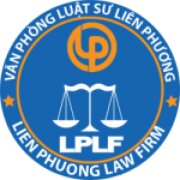Best Divorce & Separation Lawyers in Ho Chi Minh City
Share your needs with us, get contacted by law firms.
Free. Takes 2 min.
Free Guide to Hiring a Family Lawyer
List of the best lawyers in Ho Chi Minh City, Vietnam
About Divorce & Separation Law in Ho Chi Minh City, Vietnam
Divorce and Separation laws in Vietnam, including in its largest city Ho Chi Minh City, are regulated under the Marriage and Family Law of 2014. This law governs both domestic divorce cases and cases involving foreign elements. It recognises both mutual consent divorce, where both parties agree to the divorce, as well as contested divorce, where there may be disagreements over the division of property, child custody, or alimony.
Why You May Need a Lawyer
Although it’s possible to navigate the divorce process without legal representation, the complexity of Vietnamese family law can make this challenging. Obtaining legal help becomes paramount when there are marital assets to be divided, custody of children to be decided, or if one party is a foreigner or resides abroad. In such instances, a lawyer can offer expertise in negotiating fair settlements, ensuring proper procedures are followed and protecting your legal rights.
Local Laws Overview
Under Vietnamese law, separate property and joint property are recognized. Separate property includes assets owned by either spouse before marriage or inherited or gifted to one spouse during marriage and remains with the original owner post-divorce. Joint property includes assets acquired during the marriage and is typically divided equally between both parties. In cases involving children, the court tends to favour the mother, especially for young children or children with special needs. However, there is a growing recognition of shared custody arrangements. A divorced woman must wait at least 300 days before remarrying unless she gives birth or re-establishes marrital relations with her former husband.
Frequently Asked Questions
What are the grounds for divorce in Ho Chi Minh City?
The primary ground for divorce in Vietnam is that the marriage has irretrievably broken down and there is no potential for reconciliation. This could be due to disagreements, conflicts, infidelity, or any other reasons that undermine the couple's marital life.
What is the process of divorce in Ho Chi Minh City?
The divorce process begins with the submission of a request to the local People's Court. If the divorce is uncontested, the process is relatively straightforward. However, if it's contested, both parties will need to attend trial proceedings.
Who gets custody of the children?
The custody of the children is decided based on the best interests of the child. As a general rule, children under 36 months are more likely to be ruled in the mother's custody.
How is property divided in a divorce?
assets acquired during the marriage are typically considered joint property and are generally divided equally. However, tangible or intangible assets owned by either spouse before marriage or inherited or gifted to either spouse during the marriage remains with the owner.
Are foreigners treated differently in divorce proceedings?
No, foreigners are treated fairly in divorce proceedings. However, complexities may arise due to identification, location, or if children are involved. In such cases, it's advisable to seek a lawyer's help.
Additional Resources
The Ministry of Justice of Vietnam provides helpful legal guides and codes. Besides, The Women's Union and the Department of Justice in Ho Chi Minh City offer help and advice in family law issues. Various legal aid agencies provide free or low-cost advice and legal services, that can be useful for individuals unable to hire a lawyer.
Next Steps
If you need legal assistance, it is advisable to seek counsel from a lawyer specialising in family law. Start by compiling all relevant legal documents related to your marriage, assets, and children. Having a clear understanding of your legal objectives will be instrumental in guiding the lawyer towards the most optimal legal strategy.
Lawzana helps you find the best lawyers and law firms in Ho Chi Minh City through a curated and pre-screened list of qualified legal professionals. Our platform offers rankings and detailed profiles of attorneys and law firms, allowing you to compare based on practice areas, including Divorce & Separation, experience, and client feedback.
Each profile includes a description of the firm's areas of practice, client reviews, team members and partners, year of establishment, spoken languages, office locations, contact information, social media presence, and any published articles or resources. Most firms on our platform speak English and are experienced in both local and international legal matters.
Get a quote from top-rated law firms in Ho Chi Minh City, Vietnam — quickly, securely, and without unnecessary hassle.
Disclaimer:
The information provided on this page is for general informational purposes only and does not constitute legal advice. While we strive to ensure the accuracy and relevance of the content, legal information may change over time, and interpretations of the law can vary. You should always consult with a qualified legal professional for advice specific to your situation.
We disclaim all liability for actions taken or not taken based on the content of this page. If you believe any information is incorrect or outdated, please contact us, and we will review and update it where appropriate.

















